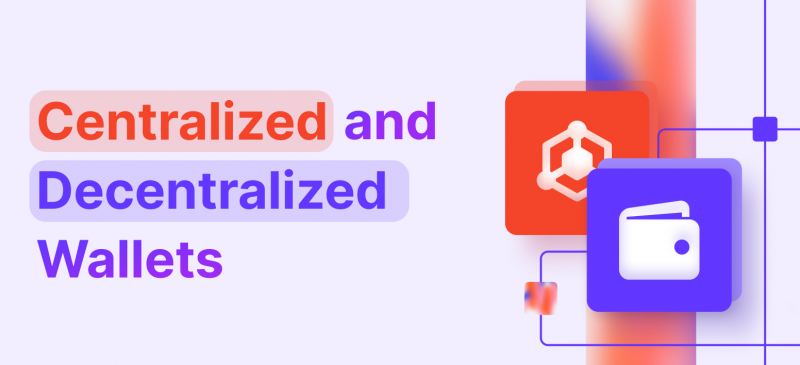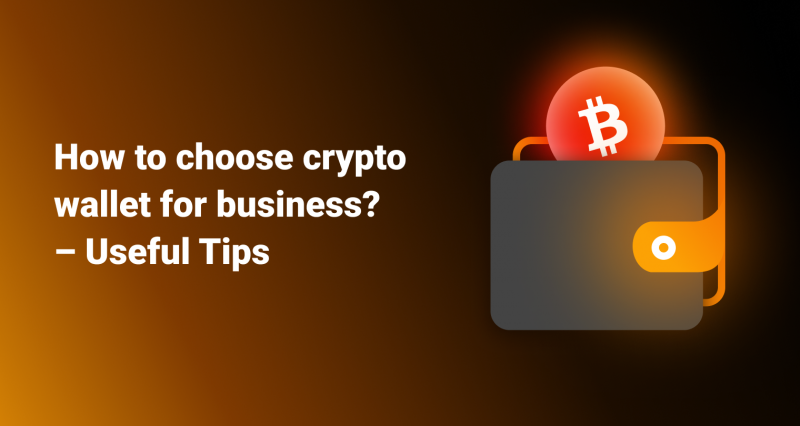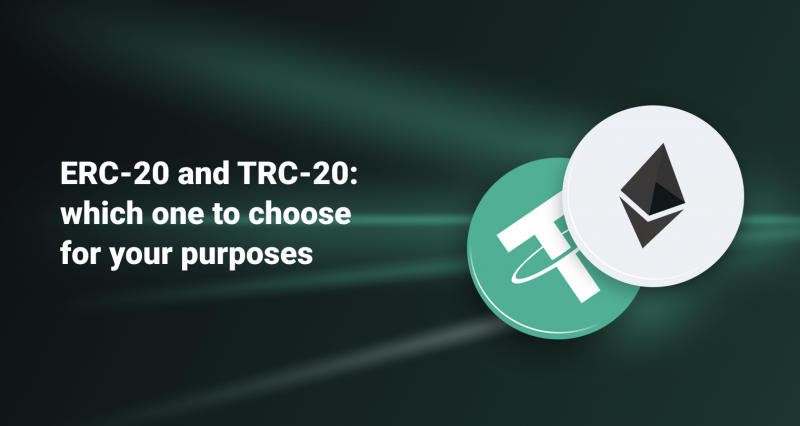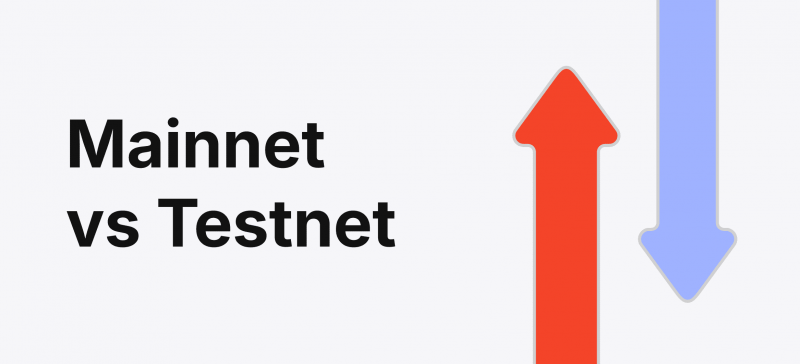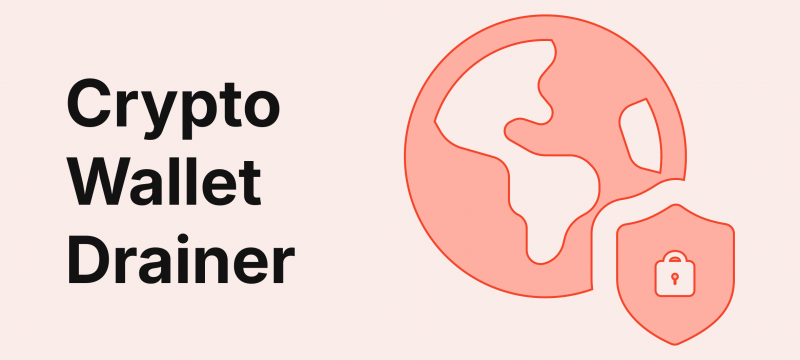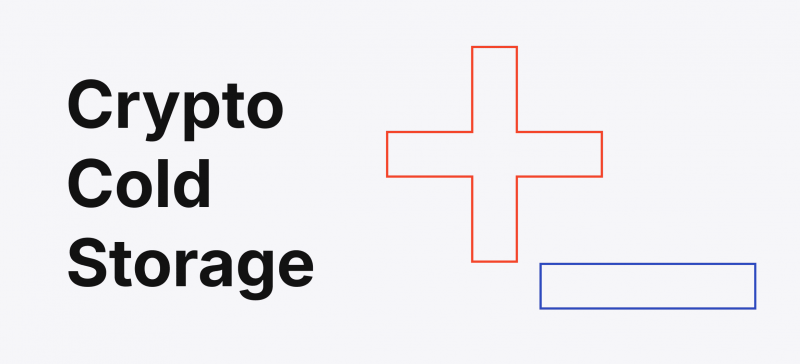Storage of crypto assets is an important issue that is asked by all traders and investors who come to the crypto market, without exception. Today’s abundance of distinct crypto wallets gives freedom of choice, offering good security, high transaction speed, and affordable prices. However, regardless of the proposed functions and characteristics, conditionally, all wallets can be divided into centralized and decentralized.
This article will tell you about centralized and decentralized crypto wallets, what is the difference between them and what are the features of their practical application.
KEY TAKEAWAYS
- Decentralized wallets, despite their youth, offer greater security, convenience, and reliability than centralized wallets.
- Unlike centralized wallets, decentralized wallets do not store private and public keys on their servers, eliminating the possibility of hacking and funds theft.
What is a Centralized Wallet?
So, what does centralized wallet mean? A centralized wallet is a program owned and operated by a centralized third party, for example, centralized exchanges that allow storing and transferring cryptocurrency. It has exclusive access and control over the funds. Consider a simple example of a regular bank to make it easier to understand. As long as the money is in the bank, the bank can manage it. If the bank goes bankrupt, customers lose their investments. Also, the bank can limit access to customer funds, and customers, in turn, have to pay the bank a service fee for accounts and cards.
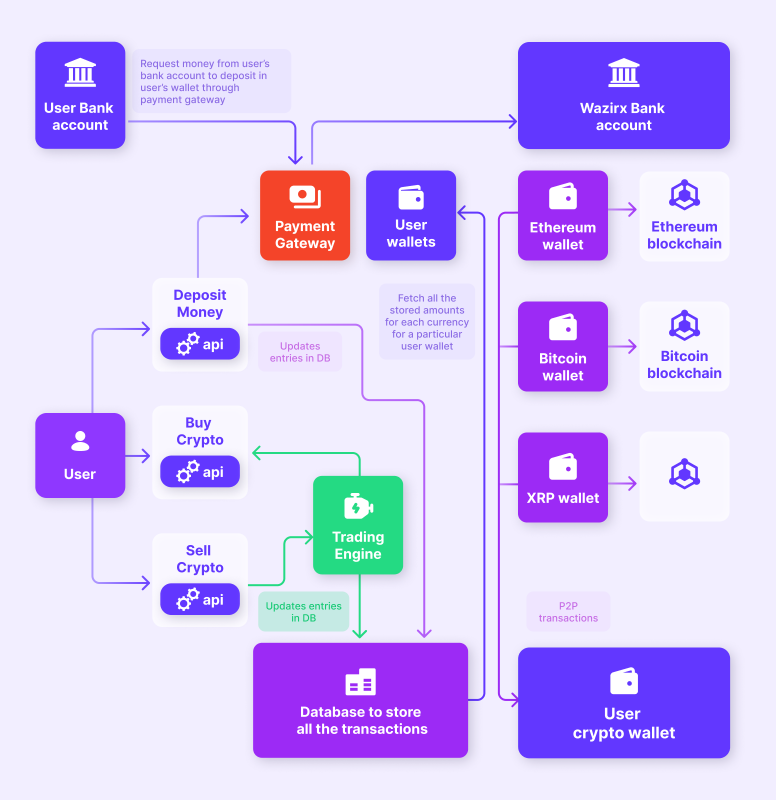
A similar analogy can be seen in the use of centralized wallets. Those who use a centralized wallet generally have no access to private keys. This type of wallet goes against the principle of blockchain to some extent. Moreover, this type of cryptocurrency wallet management poses a significant risk to asset owners in case of dishonest third-party administration.
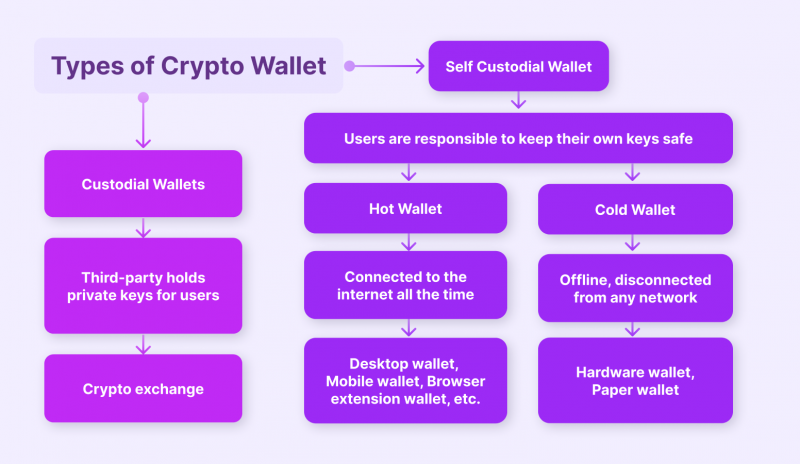
Most centralized wallets are free and do not charge extra for transactions. Only the fee set within the blockchain is paid. The commission is transferred directly to blockchain participants, who ensure the transaction is added to the system quickly and securely. While some wallets have the ability to set minimum fees, it’s important to remember that the fee determines the speed of the transaction. The higher the commission, the faster your transaction will be processed.
What is a Decentralized Wallet?
The concept of decentralized wallets implies that a person holding a private key conducts all financial transactions with funds (decentralized cryptocurrency). Although this type of wallet does not guarantee complete anonymity, it gives you the right to dispose of assets without the involvement of a third party. When using a decentralized wallet, you should clearly understand that the user is fully responsible for managing funds and assets. To this end, it is recommended to keep at least two copies of the private key and remember that only the user must have access to the key data. If the user loses or forgets the private key, the provider will not be able to recover the password or mnemonic phrase, since only the wallet user has access to the data.
There are several different types of decentralized wallets. The most common are custodial and noncustodial.
In noncustodial wallets, users have full control over their tokens and coins within the decentralized system, as well as private keys confirming that the money belongs to them. On the other hand, a vaulted wallet has a hosting service with an official protocol that stores users’ cryptocurrency keys, which means that the host has a vault.
Custodial wallets are a more popular solution. They do not require much from the user, but you must find a reliable and trusted wallet with an official protocol to store your keys securely. Choosing the right decentralized finance storage solution can save money.
Crypto wallets are divided into centralized and decentralized, hot and cold, custodial and non-custodial.
Practical Application, Differences, and Features of Centralized and Decentralized Wallets
Decentralization in cryptocurrency is a new phenomenon that became widespread with the arrival of centralized & decentralized crypto exchanges. Thanks to the development of blockchain technologies, the possibilities of storing and transferring crypto funds have become virtually limitless, allowing a wide range of choices and offering a comprehensive solution for working on the crypto market. In order to understand the essence of each of the presented types of wallets, let’s consider their differences, conditions of practical application and the features they have.
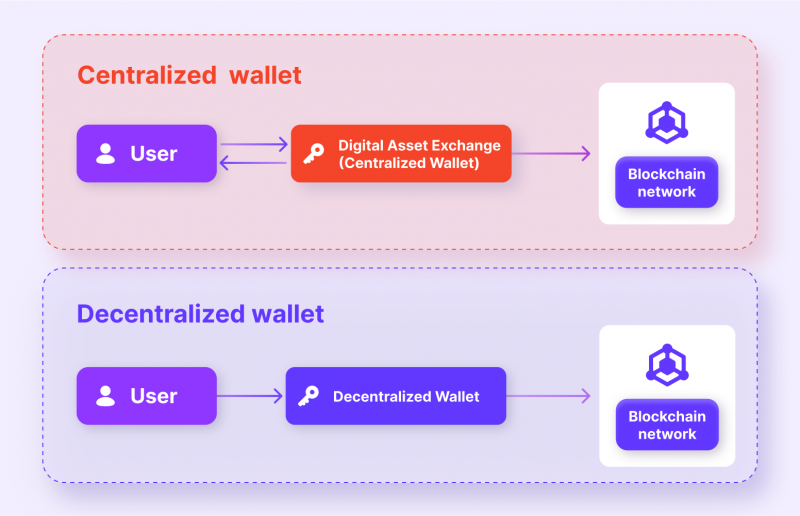
Centralized Wallets
Speaking of centralized wallets, it’s worth noting right away that they are directly related to centralized finance. Any centralized exchange that offers the opportunity to open an account and trade a cryptocurrency has a built-in crypto wallet that contains as many addresses to store as many classes of crypto assets as the exchange itself offers. In addition to this, special attention should be paid to the fact that such wallets are part of the infrastructure of the crypto exchange, the smooth operation of which depends entirely on its stable functioning of the exchange itself.
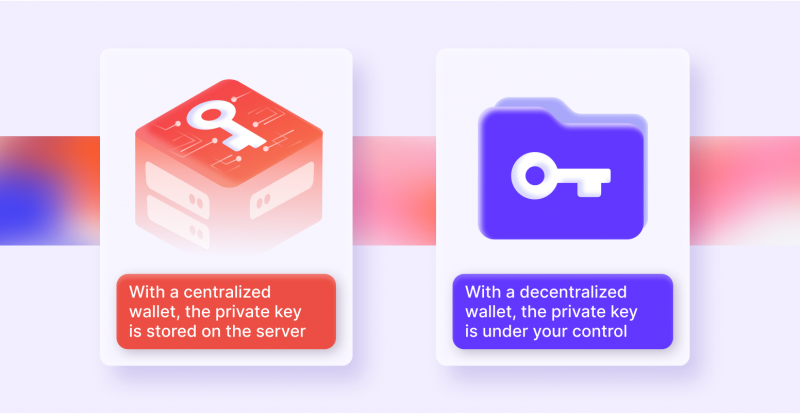
Drawing a parallel between centralized vs decentralized crypto wallets, the first type is more vulnerable in terms of security because all private keys and other important data, which determine the safety of user funds, are stored with a third party, i.e., often a crypto exchange. This factor plays an indispensable role when it comes to keeping your assets in a safe place and having full control over them.
Decentralized Wallets
Decentralized wallets became popular with the arrival of decentralized exchanges. Unlike centralized exchanges, decentralized exchanges do not store users’ private wallet keys on their servers, which significantly increases the level of security and reduces the likelihood that third parties can get hold of sensitive data. Moreover, decentralized crypto exchange has enhanced security protocols that provide an additional level of security when dealing with any class of wallet, be it Metamask, Trust Wallet, or others.
By their nature, centralized and decentralized exchanges have a good level of protection, since both of these types are directly related to trading crypto assets. The only thing to consider when thinking about centralized vs decentralized wallet is the access to private keys, which are the most important element to protect and secure the wallet’s assets. Therefore, among the many solutions presented in the market, you should choose one of the most reliable solutions. At the same time, exchanges such as Binance, Kraken, and Kucoin offer multifunctional centralized wallets. Although many people wonder if Coinbase wallet is decentralized, this is not the case because this exchange is also one of the centralized wallets.
Conclusion
Even though, on the one hand, the decentralized cryptocurrency list is quite long, and many cryptocurrency investors prefer to have a decentralized wallet due to its safety and reliability, on the other hand, many crypto-fans keep their assets exclusively on centralized wallets of exchanges. In any case, before making a final decision, one should carefully study all options, conduct a comparative analysis, and determine their own criteria for selection.
